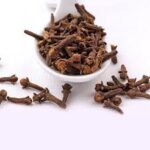What is Chaga Mushroom?
Chaga Mushroom (Inonotus obliquus) is a parasitic fungus that grows primarily on birch trees in cold climates such as Siberia, Canada, and parts of Northern Europe. Unlike typical mushrooms, it appears as a dark, charcoal-like mass on tree bark. Revered in folk medicine for centuries, Chaga is known for its immune-supporting, antioxidant-rich, and adaptogenic properties.
Health Benefits of Chaga Mushroom
-
Powerful Antioxidant: Rich in melanin, polyphenols, and superoxide dismutase, Chaga helps combat oxidative stress.
-
Boosts Immune Function: Contains beta-glucans that support the body’s natural defenses.
-
Supports Cellular Health: May help protect DNA from free radical damage and reduce inflammation.
-
Balances Blood Sugar: Some studies suggest Chaga may help regulate blood sugar levels.
-
Promotes Healthy Skin: The antioxidants and melanin may support skin regeneration and slow aging.
-
Supports Gut Health: Its anti-inflammatory compounds may benefit digestive function and microbiome balance.
-
Adaptogenic Effects: Helps the body manage stress and restore balance.
How to Make Chaga Tea
Ingredients:
-
1–2 teaspoons dried Chaga chunks or powder
-
2 cups filtered water
Instructions:
-
Combine Chaga and water in a small pot or saucepan.
-
Simmer on low heat (do not boil) for 30–60 minutes.
-
Strain into a cup.
-
Optional: Add cinnamon, ginger, or maple syrup for taste.
-
Chaga chunks can often be reused 2–3 times.
Tip: For maximum benefits, avoid boiling and use a covered pot to retain volatile compounds.
Precautions
Chaga is generally considered safe, but it may interact with medications for blood thinning, diabetes, or autoimmune disorders
#Chaga Mushroom
#Inonotus obliquus
#Medicinal Mushrooms
#Immune Support
#Antioxidant Rich
#Adaptogenic Herbs
#Herbal Tea
#Natural Remedies
#Blood Sugar Balance
#Traditional Fungi Medicine












